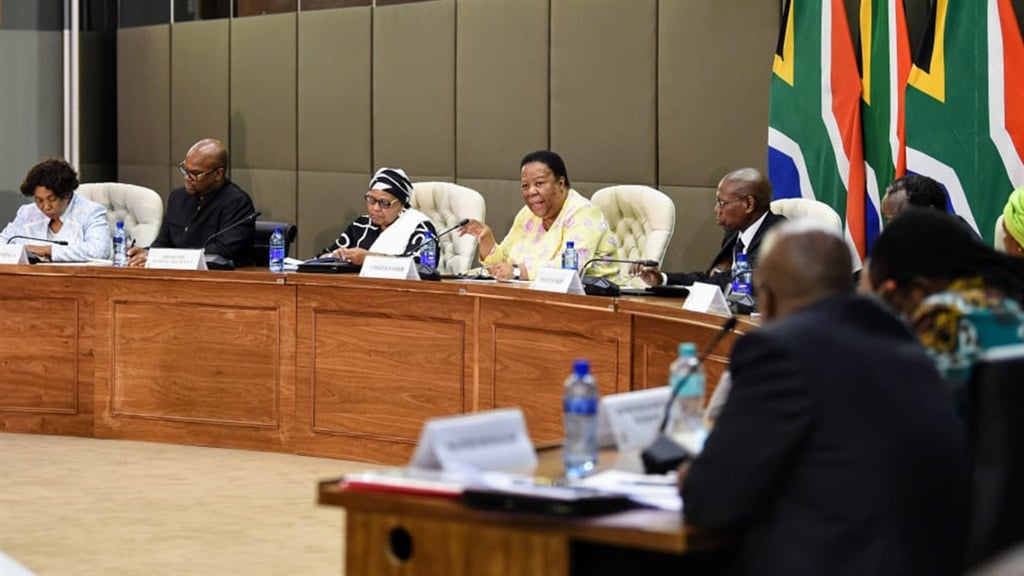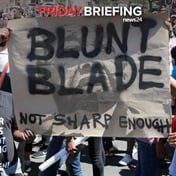
South Africans, Covid-19 or not, cannot simply and blithely forfeit their freedoms and liberties to the state without questioning every detail of how and what it is going to do with it, writes Pieter du Toit.
On Thursday night, the South African state will take almost complete control of its citizens' lives.
In an attempt to curb the spread of the coronavirus and Covid-19, the disease it causes, the government will implement strict nationwide lockdown rules for 21 days, from now until mid-April.
The coronavirus has caused death and devastation wherever it has been allowed to gain a foothold.
Thousands of people have died while hundreds of thousands are now confirmed sick.
It has caused a rupture in the fabric of human life, laid waste to economies, changed our way of living, extinguished sport and cultural life, and instilled fear and anxiety in almost everyone on the planet.
And experience, supported by scientific research and governance best practice, holds the only way to prevent a full-scale catastrophe in lost lives and a severely damaged economy is to enforce a hard and fast localised lockdown.
By forcing people to stay in one place - prohibiting the movement of people - it stops infections and isolates the sick.
Authorities in China, Italy and New York refused to enforce a lockdown until it was too late.
In Wuhan, migrant workers took the virus to almost all corners of Southeast Asia, and from there to Europe and America.
It then arrived in South Africa.
Italy's death toll has now surpassed that of China, and New York is considered the new epicentre of the virus.
A properly enforced lockdown, by all accounts and in accordance with the most recent scientific thinking, is therefore the only avenue open to health authorities and governments to save lives.
The South African government, led by President Cyril Ramaphosa, has rightly been praised for its approach to the pandemic.
Ramaphosa has communicated clearly and with empathy, going out of his way to explain the urgency and reasoning behind the government's actions.
And his health minister, Zweli Mkhize, has been similarly vocal and visible, leading the scientific community in the fight against the virus.
But on Wednesday night, the securocrats took charge.
In a large, stuffy and overcrowded room at the head office of the Government Communication and Information System (GCIS) in Pretoria, they announced the details of the lockdown, published that same evening in the Government Gazette.
The state, and its implementing agents, the police and army, will henceforth regulate and restrict the freedom of movement of every single South African, bar the few who have been deemed to be delivering essential services to society.
It confines everyone to their homes, it prohibits all gatherings (except for funerals), it bans all movement between provinces, it shuts down most of the country's businesses, it shuts down trains, grounds aircraft and closes all borders.
It empowers ministers to make changes to the regulations as they see fit, to decide who leaves the country and who cannot and decide which functioning businesses must be closed.
And then there are the powers, given under these regulations, to the police and army.
Regulation 11E states: "No person is entitled to compensation for any loss or damage arising out of any bona fide action or omission by an enforcement officer under these regulations".
That gives security personnel a very, very wide berth to do as they see fit under these unusual circumstances. It does not completely give them free rein, but clearly gives them more cover than under normal conditions.
And it makes every roadblock and every checkpoint a lottery.
When explaining the details of the regulations at the briefing on Wednesday, Bheki Cele, the police minister, and Fikile Mbalula, the transport minister, got increasingly worked up and combative when asked rather inane questions about enforcement and movement.
Where Ramaphosa spoke with clarity and empathy, their tone and rhetoric were full of bombast and antagonism.
Where Ramaphosa asked for understanding and patience, they boasted of the power of the state and total submission by the citizenry.
And where Ramaphosa was clear about the intended outcome, they were focused on authority.
Ebrahim Patel, the trade and industry minister, Ronald Lamola, the justice minister, and Nkosazana Dlamini-Zuma, the cooperative governance and traditional affairs minister, tried to blunt the assault by Cele and Mbalula (who clearly misses his days as police minister) and again explained the need for extraordinary measures during extraordinary times.
And they did so with conviction and eloquence.
Emergency regulations, like these, create space for abuses of power.
Whether it be emergency procurement regulations or directives that restrict freedom of movement.
Democratic South Africa has never been in a situation like this before.
And, by the admission of some ministers and officials on Wednesday night, we are making up a lot of stuff as we go along.
But South Africans, Covid-19 or not, cannot simply and blithely forfeit their freedoms and liberties to the state without questioning every detail of how and what it is going to do with it, especially after the last decade of corruption, mismanagement and criminality.
Ramaphosa and Mkhize have gone to enormous lengths to be open, transparent and efficient in their dealings with the public.
But Cele and Mbalula, in charge of enforcement and movement, have again shown why the authority of the state must always be challenged and kept in check.
Virus or no virus.




 Publications
Publications
 Partners
Partners























